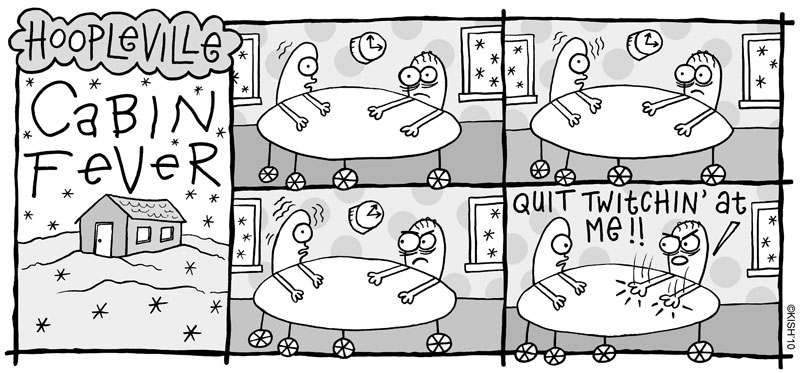The winter has been particularly intense and long this year. While cabin fever is not an official diagnosis, the weather can affect our moods. Some people suffer from depression or anxiety that has a seasonal pattern. These people often have new or worse symptoms during the winter months which can include changes in mood, anxiety, sleep problems, fatigue, changes in appetite, sleep issues, and irritability. Even for those who don't have a mental health diagnosis with a seasonal pattern winter can be difficult. The snow, ice, cold, and cloudiness seem to make everyone more tired, more irritable, and more likely to want to hibernate. If you are feeling this way you aren't alone. Many other people, especially those in northern latitudes suffer from "the winter blues" (Rosen, et. al, 1990)
Unfortunately, we have little control over whether the ground hog will see his shadow and if spring will be on it's way soon. There are however some things that you can do to help you through until your episode of "cabin fever" passes:
- Eat a healthy diet. When our bodies are healthy and have all the vitamins, minerals, and nutrients they need to function we feel better. It might be even more important in winter when we have less access to fresh fruits and veggies and the benefits of the sun to count on.
- Exercise. Exercising can improve your mood and increase your energy level. Aim to get some regular exercise and it will help to beat the blues.
- Don't isolate. Make plans with friends and family or give a friend a call. Due to the weather and low mood people tend to spend less time with others in the winter months. Spending time with others provides social support and can improve our mood.
- Make plans. It can often help our mood if we have something to look forward to. This could be anything from a road trip to planning a nice dinner party with friends.
- Steer clear of alcohol. Alcohol is a depressant and can make your mood worse. It is okay in moderation but drinking large amounts of alcohol can make mood problems worse and make you more irritable.
- Enjoy winter. It can be hard to do but there are lots of things to do to enjoy winter like sledding, snowboarding, skiing, snow shoeing, making a snow man, or going to an outdoor ice skating rink. When you enjoy the moment instead of wishing for the next one it can make a big difference.
Rosen, L. N., Targum, S. D., Terman, M., Bryant, M. J., Hoffman, H., Kasper, S. F., ... & Rosenthal, N. E. (1990). Prevalence of seasonal affective disorder at four latitudes. Psychiatry research, 31(2), 131-144.
Comic from: http://thephoenix.com/boston/life/98815-cabin-fever-2010/ by David Kish.
